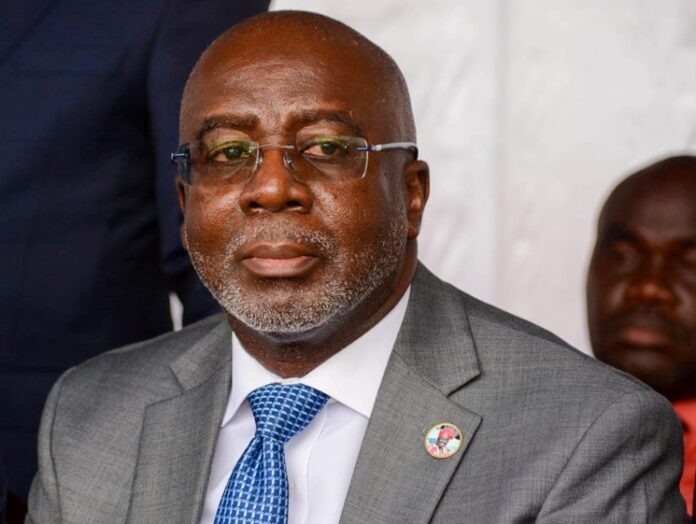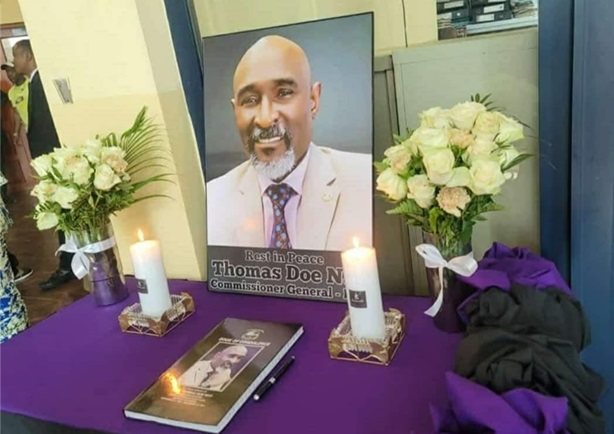MONROVIA, LIBERIA – In a surprising turn of events surrounding the race for the position of Speaker of Liberia, allegations of US citizenship are causing a stir in the political arena. The dispute centers around two candidates, Rep. Richard Koon of District Number and Cllr. Koffa, with both sides accusing the other’s candidate of holding American citizenship and consequently being ineligible for the position.
However, Rep. Koon has vehemently denied being a US citizen, claiming that he acquired a Green Card through a teacher exchange program sponsored by the World Bank and the University of Liberia. To support his claim, he presented evidence of his expired Green Card and an InfoPass stamp in his Liberian passport, which he has been using for travel since the expiration of his Green Card.
Rep. Koon of Montserrado County Electoral District #11, who was re-elected at the October polls in the 2023 Presidential and Legislative Elections, has since spoken on tje issue and denied being a US citizen.
“I got my Green Card on the teacher exchange program sponsored by the World Bank through the University of Liberia,” Mr. Koon asserted.
“I had Green card that expired since 2018 during my Professor Exchange Program at the University of Michigan. Since then I have been traveling with InfoPass Stamp in my Liberia Passport. My last Info Pass expired September 27, 2023. See attached,” he added with some documentary evidence of his passport.
On the other hand, Cllr. Koffa has not publicly responded to the allegations regarding his citizenship. However, there are suggestions that his passport may have expired in February 2022, casting doubt on his eligibility.
The political parties involved, the ruling Unity Party (UP) and the outgoing Coalition for Democratic Change (CDC), have engaged in a heated debate, with each side accusing the other of fielding an American citizen as their candidate. This could potentially lead to legal challenges that have the power to disrupt the Speakership election and even the inauguration date, thus resulting in a constitutional crisis.
The situation is further complicated by the circulation of passports and other related documents on social media. However, their authenticity has not been independently verified, raising concerns about potential misinformation and its implications for the political process and constitutional stability.
Given the gravity of these allegations and their potential consequences, it is crucial that a thorough and impartial investigation into the citizenship status of the candidates takes place. This investigation should focus on verifying the authenticity of the documents circulating on social media.
The relevant authorities must address these allegations swiftly and transparently to ensure a fair and uninterrupted political process. Promoting an environment of open dialogue and adherence to legal processes will be key in resolving the claims and avoiding potential constitutional crises.
As members of the House of Representatives cast their votes for leadership positions, including the speakership, it is essential to consider not just the effectiveness of the candidates but also their legitimacy. Clarity and resolution on the citizenship issue are needed to proceed with the election and inauguration smoothly.
The coming days will be pivotal in determining the path forward, as legal challenges may emerge and further delay the political process in Liberia. It is imperative that all parties involved approach this situation with caution and prioritize the unity and stability of the nation.







